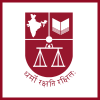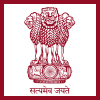Automobiles
Automobiles
Since delicensing and economic reforms, the Indian automobile industry has grown steadily. One of the biggest employers, both directly and indirectly, the impressive growth of the Indian automobile sector accounts for 22% of the country’s manufacturing gross domestic product (GDP). All these factors result in a wide range of options for consumers when it comes to deciding on motor vehicles. Thus, the consumers need to also be educated about grievance redressal regarding the automobile sector.
Grounds for Complaint
- any fault, imperfection or shortcoming in the quality, quantity, potency, purity, nature or standard of goods the real mileage of your car is less than as claimed
- attempt to obtain extra money from you in any form like fee, trade, or other types of compensation.
- No RC number was given
- Damaged vehicle provided
- Any manufacturing defects in the automobile defective airbags
- misleading and false statements, representations and warranties and other unfair methods or deceptive practices
When Complaints Would Not Be Accepted
There are various situations which might cause the complaint to be rejected. These include situations where the consumer is unable to file an appeal against an order within a period of three months, where the complaint is based on a frivolous cause of action, where the complaint falls outside the jurisdiction of the authority approached, and when the complaint has been filed under wrong sections of the act, and other such situations. This requires careful reading of all acts and regulations.
Complaint Redressal Mechanism
1. Approach the dealer, lender, manufacturer or the company itself
The consumer may first approach the dealer, lender, manufacturer or the company itself. One can expect a refund or other types of a satisfactory response from the auto dealer or manufacturer along with the justification. Customer service numbers of some companies:
- Tata Motors India – 022-62407101
- Mahindra & Mahindra India – 1800 209 6006
- Maruti Suzuki India – 1800 102 1800
- Hero MotoCorp India – 1800 266 0018
- Bajaj Auto India – 7219821111
- Toyota India – 1800 425 0001
- Chevrolet India – 1800 3000 8080
- Mitsubishi Motors Customer Care Number – 1800 102 2955
- Honda Motors Company Ltd. – 1800 708 6555
- Ford Motor Company – 1800 419 2500
2. Approach the National Consumer Helpline
Call- 1800114000 or 1915
For misleading advertisements- Click here
3. Approaching any other appropriate judicial or quasi-judicial body:
The complainant is free to take the service provider to a court or any other suitable venue (judicial or quasi-judicial). The proceedings in consumer commissions are not mired by the niceties of procedure, allowing the complainant to file a complaint for himself. As a consumer, the aggrieved party can take the service provider to the appropriate consumer commission, based on the pecuniary and territorial jurisdiction. The jurisdictions of the various consumer commissions are as follows-
a) District Commission: The aggrieved consumer can reach out to the District Commission under section 34 of the CPA, 2019, which provides that the district commission shall entertain matters where the value of the goods or services paid as consideration does not exceed more than one crore rupees.
b) State Commission: In cases where the value of the goods or services paid as consideration is more than one crore, but less than 10 crores, the consumer can approach the State Commission. Moreover, in cases of unfair contracts, the State Commission has original jurisdiction and the consumer can be directly approached. An appeal against the order of the District Commission can also be made under section 47 of the CPA, 2019.
c) National Commission: The National Commission can entertain matters where the value of goods or services paid as consideration exceeds 10 crores. Section 58 also provides that complaints against unfair contracts can be entertained by NCDRC when the amount of value paid exceeds 10 crores. The NCDRC also has appellate jurisdiction against the orders of any State Commission and Central Authority.
Moreover, it must also be kept in mind that section 100 of the CPA, 2019 provides that the remedy under CPA is in addition and not in derogation of other available remedies.
4. Central Consumer Protection Authority
If the commission finds violations of rights of consumers or in notice of trade practices which is unfair it can inquire or cause an inquiry, either on receipt of complaint or suo moto or as directed by Central Government. If the commission finds, after preliminary inquiry, of an existence of a prima facie case of consumer rights violation or it is in notice of any unfair trade practice or any wrong or inaccurate advertisement which is prejudicial to public interest or to the interests of the consumers, it can order an investigation by the District Collector or by Director General.
The consumer can complain to the District Collector of the respective district for investigation and subsequent proceedings by the CCPA. He/she/they can also submit a complaint via email, at com-ccpa@nic.in.
Regulatory Bodies
1. Ministry of Road Transport & Highways- It consists of two committees i.e. Central Motor Vehicles Rules-Technical Standing Committee (CMVR-TSC) and Standing Committee on Implementation of Emission Legislation (SCOE), which advise the Ministry on automotive safety and emission regulations respectively.
2. Automotive Industry Standards Committee (AISC)
3. Bureau of Indian Standards (BIS)
4. Automotive Research Association of India
Legislation
1. Motor Vehicles Act, 1988
2. Central Motor Vehicles Rules 1989
3. Indian Contract Act 1872
4. Sale of Goods Act 1930
5. Automotive Industry Standards
6. Society of Indian Automobile Manufacturers’ (SIAM) Voluntary Code on Vehicle Recall, 2012
Landmark Judgements
1. Jagrut Nagrik and others v Proprietor, Baroda Automobiles Sales and Service,Vadodara, Gujarat and others
NCDRC held that “held that “the manufacturer of the car as well as the sales and service dealer is liable to pay. However, if in the reckoning of the manufacturer, under some agreement, the liability to pay is only that of the dealer alone on the strength of such agreement it will be for them to work out the remedy for realization of the amount in case the amount is recovered from them”.
2. Honda cars India ltd. v Sudesh Berry
The Supreme court held that vehicle manufacturers cannot be held liable for deficiencies in service by the dealers or authorized service agents.
3. M/S A.B. Motor Pvt Ltd vs N.K. Paliwal (Dead) Through Lrs.
The Supreme court held that the interest of the dealers is not independent of the vehicle manufacturer.
Sample Complaints
Important links and Resources
Consumer helpline- Click here

